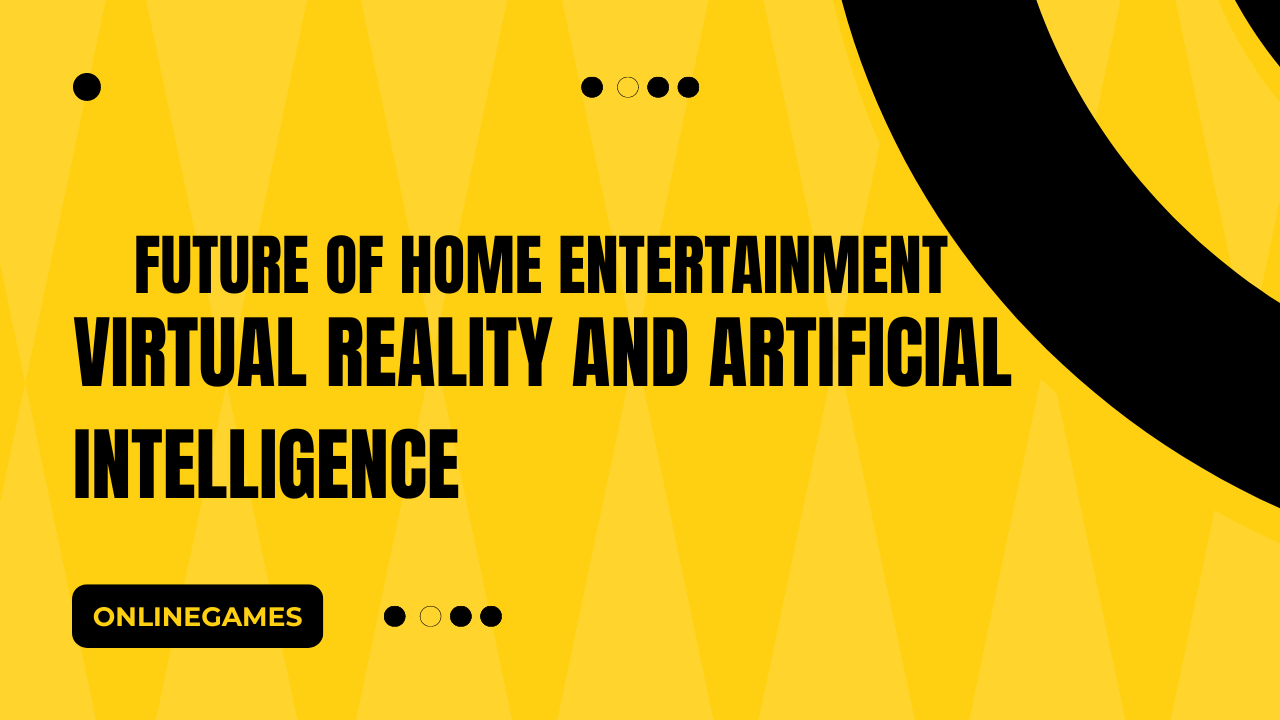The landscape of home entertainment is poised for a revolutionary transformation with the integration of virtual reality (VR) and artificial intelligence (AI) technologies. These advancements promise to redefine how we experience and interact with media, offering immersive experiences, personalized content recommendations, and unprecedented levels of interactivity. This article explores the potential of VR and AI in home entertainment, their current applications, and what the future holds for these groundbreaking technologies.
Virtual Reality (VR) in Home Entertainment
Understanding Virtual Reality
Virtual reality refers to a simulated environment created with computer technology that immerses the user in a virtual world. VR systems typically consist of a headset with displays and motion-tracking sensors, providing a 360-degree view and spatial audio for a fully immersive experience.
Applications of VR in Home Entertainment
1. Immersive Gaming Experiences
VR gaming allows players to step into virtual worlds, interact with characters and environments, and experience gameplay in a way that traditional gaming cannot replicate. Games like “Beat Saber,” “Half-Life: Alyx,” and “Star Wars: Squadrons” showcase the potential of VR in gaming.
2. Virtual Cinema and Concerts
VR enables users to attend virtual cinemas, watch movies on a virtual big screen, and experience live concerts as if they were in the front row. Platforms like Oculus Venues and NextVR offer immersive entertainment experiences from the comfort of home.
3. Virtual Tourism and Education
VR technology allows users to explore distant locations, visit historical sites, and participate in virtual tours and educational experiences. Applications in VR education range from anatomy lessons to interactive physics simulations.
4. Social VR
Social VR platforms such as VRChat and AltspaceVR enable users to socialize, attend events, and interact with others in virtual environments. These platforms blend entertainment with social interaction, offering new ways to connect with friends and communities.
Artificial Intelligence (AI) in Home Entertainment
Understanding Artificial Intelligence
Artificial intelligence refers to computer systems capable of performing tasks that typically require human intelligence, such as learning, reasoning, and problem-solving. In-home entertainment, AI enhances user experiences through personalization, content recommendations, and smart automation.
Applications of AI in Home Entertainment
1. Personalized Content Recommendations
AI algorithms analyze user preferences, viewing habits, and historical data to recommend movies, TV shows, and music tailored to individual tastes. Streaming services like Netflix and Spotify use AI to curate personalized content playlists.
2. Voice-Activated Assistants
Voice-activated AI assistants such as Amazon Alexa, Google Assistant, and Apple Siri enable hands-free control of home entertainment systems. Users can ask for movie recommendations, adjust playback settings, and control smart home devices using voice commands.
3. Content Creation and Enhancement
AI technologies like deep learning and natural language processing are used to create and enhance content. From AI-generated music compositions to automated video editing tools, AI enhances creativity and production efficiency in the entertainment industry.
4. Smart Home Integration
AI-powered smart home devices integrate with home entertainment systems to create seamless experiences. Smart TVs, speakers, and lighting systems can be controlled and automated based on user preferences and environmental conditions.
The Future of Home Entertainment
1. Enhanced Immersion and Interactivity
Future advancements in VR technology will enhance immersion with higher resolutions, wider field of view, and improved motion tracking. AI will personalize experiences further by adapting content in real time based on user interactions and preferences.
2. Integration with Augmented Reality (AR)
AR technologies will blend virtual elements with the real world, creating mixed reality experiences for gaming, education, and entertainment. AR glasses and devices will transform how users interact with digital content in their home environments.
3. AI-Driven Content Creation
AI will play a significant role in content creation, from interactive storytelling and virtual performances to personalized advertisements and virtual influencers. Creative industries will leverage AI to innovate and deliver compelling experiences.
4. Accessibility and Inclusivity
VR and AI technologies will make entertainment more accessible and inclusive, accommodating diverse audiences and preferences. Enhanced accessibility features and adaptive technologies will cater to individuals with disabilities.
The convergence of virtual reality and artificial intelligence represents a transformative shift in home entertainment, promising immersive experiences, personalized content, and innovative applications across gaming, education, social interaction, and content creation. As these technologies continue to evolve, they will redefine how we consume and interact with media, creating new possibilities for entertainment and engagement in the digital age.










